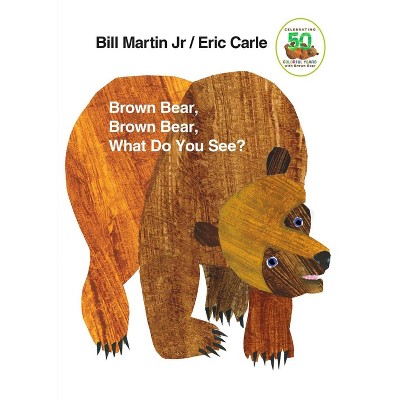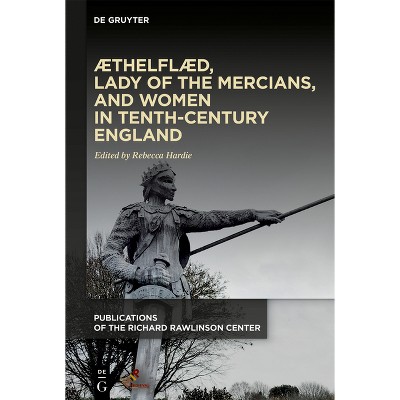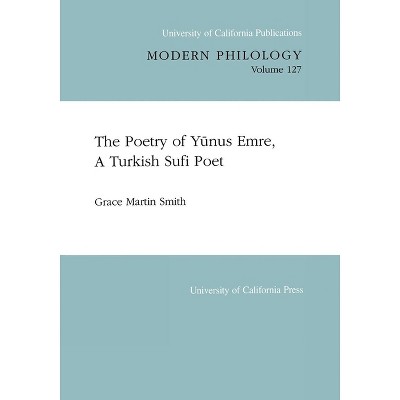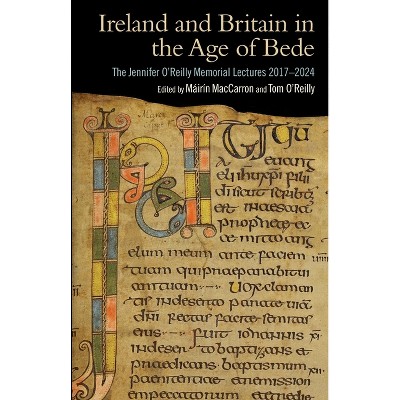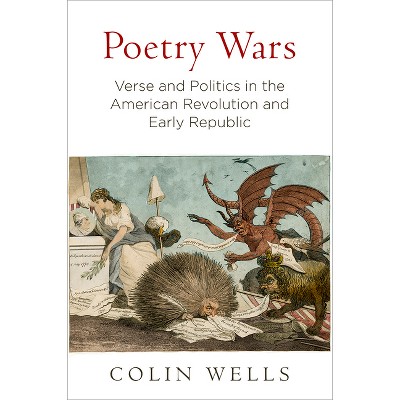The Gaelic Background of Old English Poetry Before Bede - (Publications of the Richard Rawlinson Center) by Colin A Ireland (Paperback)

About this item
Highlights
- Seventh-century Gaelic law-tracts delineate professional poets (filid) who earned high social status through formal training.
- About the Author: Colin A. Ireland, Arcadia University, PA, USA, and University College Dublin, Ireland.
- 460 Pages
- Literary Collections, Medieval
- Series Name: Publications of the Richard Rawlinson Center
Description
About the Book
841041051153210311411111711010045981141019710710511010332115116117100121321001051151121089712111532116104101321161149711011510211111410997116105111110115329911410197116101100329812132116104101321031141111191161043211110232118101114110979911710897114Book Synopsis
Seventh-century Gaelic law-tracts delineate professional poets (filid) who earned high social status through formal training. These poets cooperated with the Church to create an innovative bilingual intellectual culture in Old Gaelic and Latin. Bede described Anglo-Saxon students who availed themselves of free education in Ireland at this culturally dynamic time. Gaelic scholars called sapientes ("wise ones") produced texts in Old Gaelic and Latin that demonstrate how Anglo-Saxon students were influenced by contact with Gaelic ecclesiastical and secular scholarship. Seventh-century Northumbria was ruled for over 50 years by Gaelic-speaking kings who could access Gaelic traditions. Gaelic literary traditions provide the closest analogues for Bede's description of Cædmon's production of Old English poetry. This ground-breaking study displays the transformations created by the growth of vernacular literatures and bilingual intellectual cultures. Gaelic missionaries and educational opportunities helped shape the Northumbrian "Golden Age", its manuscripts, hagiography, and writings of Aldhelm and Bede.From the Back Cover
Seventh-century Gaelic law-tracts delineate professional poets (filid) who earned high social status through formal training. These poets cooperated with the Church to create an innovative bilingual intellectual culture in Old Gaelic and Latin. Bede described Anglo-Saxon students who availed themselves of free education in Ireland at this culturally dynamic time. Gaelic scholars called sapientes "wise ones" produced texts in Old Gaelic and Latin that demonstrate how Anglo-Saxon students were influenced by contact with Gaelic ecclesiastical and secular scholarship. Seventh-century Northumbria was ruled for over 50 years by Gaelic-speaking kings who could access Gaelic traditions. Gaelic literary traditions provide the closest analogues for Bede's description of Cædmon's production of Old English poetry. This ground-breaking study displays the transformations created by the growth of vernacular literatures and bilingual intellectual cultures. Gaelic missionaries and educational opportunities helped shape the Northumbrian "Golden Age", its manuscripts, hagiography, and writings of Aldhelm and Bede.
Colin A. Ireland edited and translated Old Irish Wisdom Attributed to Aldfrith of Northumbria and has published widely on Anglo-Saxon and Gaelic interrelationships.
Review Quotes
"This is an immensely learned book to which it is impossible to do justice even in a lengthy review. [...] With its wealth of reference to early Irish and Hiberno-Latin literature, [it] is a veritable treasure trove for readers in search of the Irish Gaelic background to Old English literature." (Rory McTurk, University of Leeds, in: Dublin Review of Books 147/2, Sept. 2022)
About the Author
Colin A. Ireland, Arcadia University, PA, USA, and University College Dublin, Ireland.



